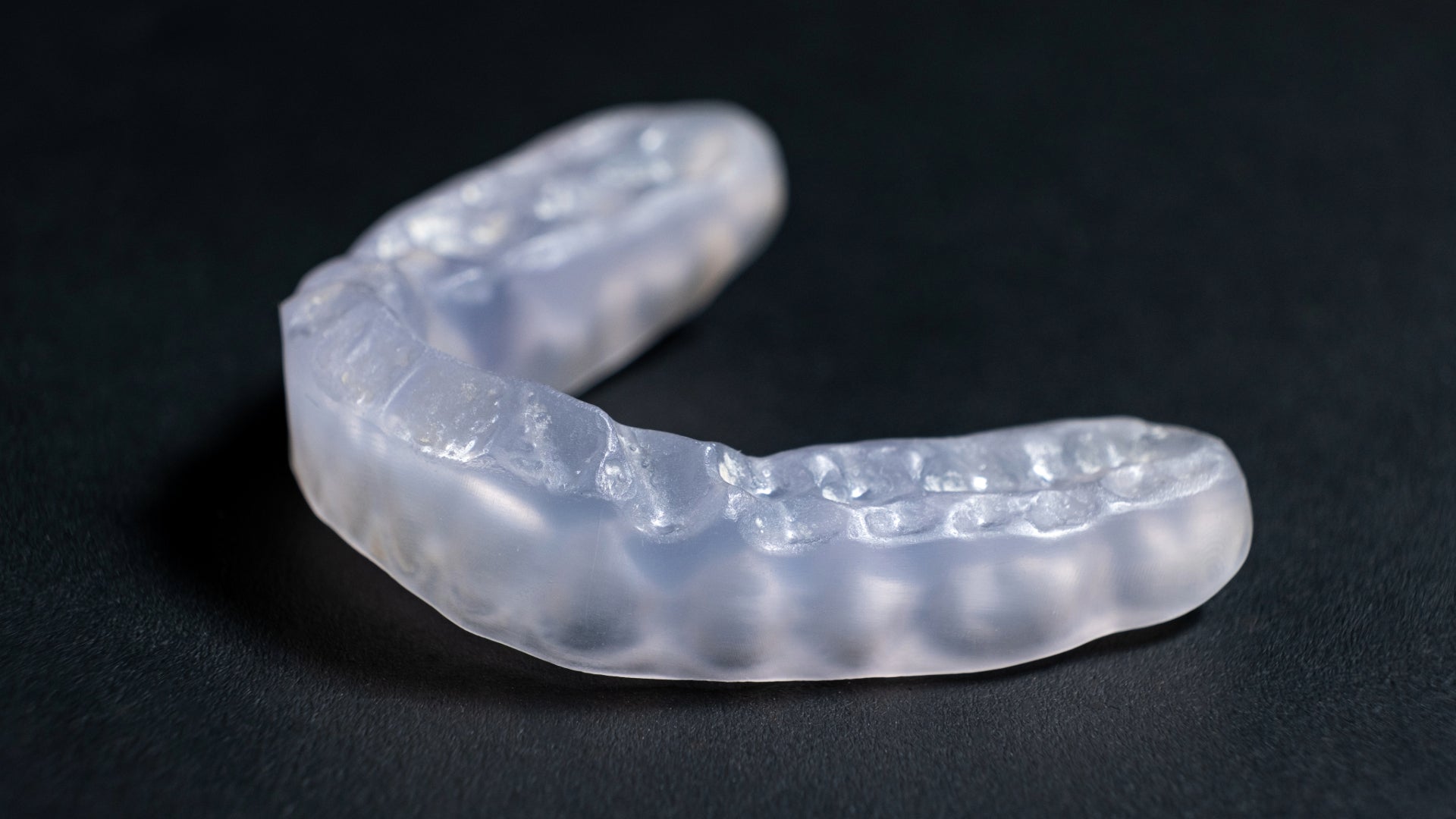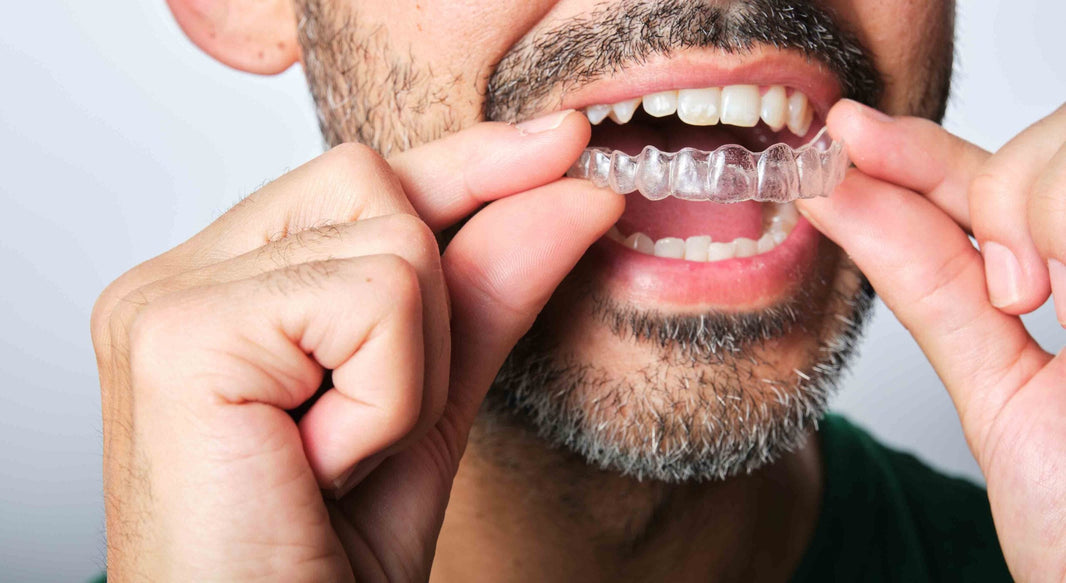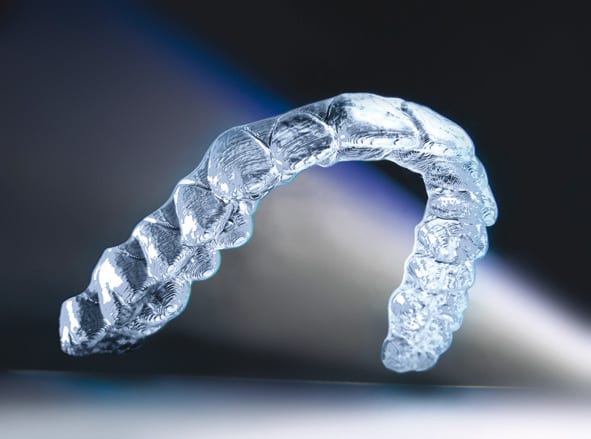Bruxism, the medical term for grinding, gnashing, or clenching teeth, can occur both during the day and at night. However, sleep bruxism is more prevalent and often goes unnoticed until it manifests in physical symptoms or dental issues. Many people are unaware that they're grinding their teeth while sleeping, only realizing the problem when damage becomes visible or painful symptoms emerge, such as jaw soreness or cracked teeth. The gradual and subconscious nature of bruxism makes it essential to identify signs early and consider protective solutions like night guards.
Table of contents
Understanding Bruxism and Its Consequences
Bruxism Mouth Guard Symptoms You Shouldn’t Ignore
The symptoms of bruxism are varied and can range from mild to severe. A sore jaw or facial muscles are common indicators, often accompanied by morning headaches that can affect daily productivity. Individuals might also notice worn-down or flattened teeth, increased tooth sensitivity, or even damage to the inside of the cheeks due to biting. These signs may escalate over time and contribute to functional issues like difficulty chewing or opening the mouth fully. Left unaddressed, these symptoms can disrupt daily life, cause chronic discomfort, and increase the risk of more severe dental problems.
Key Causes: Stress, Bite Issues, and Lifestyle Triggers
Understanding the root causes of bruxism is crucial for effective management. Stress and anxiety are significant contributors, as they can lead to involuntary teeth grinding, particularly during sleep when the body attempts to decompress. Additionally, misaligned teeth or an abnormal bite can exacerbate the condition by creating uneven pressure points in the mouth. Lifestyle factors, such as caffeine and alcohol consumption—especially late in the day—can heighten muscle activity and intensify the severity of bruxism. In some cases, underlying health conditions, such as sleep apnea or neurological disorders, may also play a role.
Long-Term Damage Without a Mouth Guard for Sleeping
If left untreated, bruxism can lead to more serious issues, such as temporomandibular joint (TMJ) disorders. The continuous pressure on the teeth and jaw can result in enamel erosion, tooth fractures, gum recession, and even tooth loss. In severe cases, it may contribute to chronic pain in the face and jaw, recurring tension headaches, and difficulty with jaw mobility, necessitating more complex dental interventions like crowns, root canals, or corrective jaw surgery. The longer bruxism continues without intervention, the more difficult and expensive it becomes to reverse the damage.

What Is an Occlusal Guard?
An occlusal guard, or night guard, is a protective device designed to shield the teeth from the detrimental effects of grinding and clenching. It serves as a crucial barrier, offering both immediate relief and long-term protection. Typically made from medical-grade plastic or acrylic, these guards are worn over the upper or lower teeth to minimize contact and absorb the force of grinding, thus preserving dental structure and reducing stress on the jaw joint.
The primary function of an occlusal guard is to act as a barrier between the upper and lower teeth. By absorbing the pressure exerted during grinding, the guard prevents direct contact, thus safeguarding the teeth from wear and tear. This not only preserves the integrity of the teeth but also reduces tension in the jaw muscles, alleviating associated pain and discomfort. Over time, consistent use can also help train the jaw to adopt a more relaxed resting position, promoting better sleep and reducing the frequency of grinding episodes.
Types of Occlusal Guards and Night Guards
Soft Nightguards
Constructed from flexible materials, these are ideal for individuals with mild bruxism. They offer comfort and adaptability, making them easier to wear for beginners, but may not be durable for heavy grinders.

Dual Laminate Guards
Featuring a soft inner layer for comfort and a harder outer layer for durability, these are suitable for moderate to severe grinders. They provide a good balance of strength and flexibility.

Hard Acrylic Nightguards
Made from rigid acrylic, these are best suited for heavy grinders and individuals with TMJ disorders, offering robust protection and stability. They also resist deformation over time.

Custom Night Guards
Tailored to fit an individual's mouth perfectly, these provide the best combination of comfort and protection. Their precision fit reduces slippage and enhances effectiveness.

Custom Night Guard vs. Over the Counter: Fit, Comfort, Durability
The effectiveness of an occlusal guard largely depends on its fit. Custom night guards, crafted from molds of the user's teeth, ensure an optimal fit, maximizing protection and comfort. These guards are less likely to interfere with breathing or speaking and can remain securely in place throughout the night. While they may come at a higher cost, their tailored design makes them a worthwhile investment for those suffering from severe bruxism or looking for long-term relief without frequent replacements.
When to Use a Night Guard
Determining the right time to begin using a night guard depends on both symptoms and clinical evidence. Many people delay treatment until damage becomes irreversible—such as enamel erosion, chipped teeth, or chronic jaw tension. However, waiting can compound the issue. Dentists recommend early intervention at the first signs of bruxism to avoid long-term complications. Whether symptoms are occasional or persistent, incorporating a night guard into your routine early can act as a preventive step rather than a reactive fix. It's not only about current discomfort—it's about preserving your future dental health before small problems become expensive repairs.
When to Start Using a Bite Guard for Bruxism
Common signs that indicate the need for a night guard include waking up with a sore jaw or persistent headaches, particularly in the temple or behind the eyes. Your partner might also notice grinding noises at night, alerting you to the issue. Moreover, routine dental check-ups might reveal signs of wear on your teeth, prompting a discussion about bruxism with your dentist. Early recognition and intervention can prevent the condition from progressing.
Dentist Consultation Checklist & Digital Scan Process
Consulting with a dentist is crucial in determining whether a night guard is necessary. A professional assessment can confirm a bruxism diagnosis and recommend the most suitable type of guard based on the severity and frequency of grinding. The dentist can also provide guidance on proper usage and maintenance to ensure the guard's effectiveness and longevity, potentially incorporating digital impressions or bite analysis into the treatment plan.
Benefits of Using a Night Guard
Using a night guard offers numerous benefits that extend beyond tooth protection. It can significantly reduce jaw pain and alleviate headaches associated with bruxism. By preventing dental damage, it also proves to be cost-effective, saving on potential dental repairs in the future. Furthermore, a night guard can improve sleep quality by reducing discomfort and interruptions caused by grinding. Over time, consistent use can enhance overall oral health and reduce the likelihood of requiring invasive dental procedures.

Occlusal Guard Cost and Price
Night-guard pricing can range from $20 for a generic drug-store tray to $600 or more for a fully custom, lab-fabricated appliance. That spread reflects the materials used (soft EVA vs. dual-laminate or hard acrylic), the precision of the fit (boil-and-bite vs. digital CAD/CAM), and whether the guard is made in-office or by an external dental lab. Additional variables include chair time for impressions, follow-up adjustments, and geographic overhead—urban specialty practices often charge more than suburban general-dentistry offices. Because bruxism is considered a functional disorder (not purely cosmetic), many dental insurance plans reimburse 40–60 percent of the fee for a professionally fabricated guard—provided the dentist supplies proper documentation. Patients without coverage can often tap flexible spending accounts (FSA/HSA) or arrange interest-free payment plans through their provider. Taking these cost levers into account helps you choose a guard that balances budget with long-term protection.
Factors Driving Price
The material of the night guard plays a crucial role in its comfort and durability. Soft guards are comfortable but may not withstand the pressure exerted by severe grinders, often needing replacement more frequently. In contrast, hard acrylic guards offer durability and structural integrity but may require an adjustment period due to their rigidity. Dual laminate options offer a good middle ground for those seeking comfort without sacrificing performance.
Fit and Customization
A properly fitting night guard is essential for optimal effectiveness. Custom night guards, specifically molded to the individual's teeth, provide the best fit, ensuring comfort and protection. Poorly fitting guards can lead to discomfort, reduced usage, or even worsening symptoms. Although custom options are more expensive, their tailored fit makes them a valuable investment for long-term use and can often be covered partially by dental insurance plans.
Why a Custom Dental Night Guard Often Pays for Itself
Night guards vary in price, influenced by factors such as material and customization. While over-the-counter options are more affordable and readily accessible, they may not offer the same level of protection, fit, or durability as custom guards. Investing in a custom night guard can provide better protection and longevity, making it a cost-effective choice for those with chronic bruxism. Considering the cost of potential restorative dental work, a quality night guard often pays for itself.
Cleaning A Mouth Guard or Gum Shield
A night guard is only as effective as the care it receives. Just like a toothbrush or retainer, it lives in close contact with your mouth and needs regular upkeep to remain safe and functional. Improper maintenance can lead to bacterial buildup, foul odors, or even fungal contamination—all of which can undermine your oral health. In addition to daily and weekly cleanings, storing the guard in a cool, dry place and protecting it from physical damage is key to preserving its lifespan. With the right habits, your guard can provide years of reliable protection without needing frequent replacement.
Daily Rinse Routine + Weekly Deep-Clean (How to Clean a Mouth Guard)
Regular cleaning is essential to maintain the hygiene and functionality of a night guard. After each use, rinse the guard with water and clean it with a toothbrush and mild soap to remove any debris or bacteria. For deeper cleaning, consider using non-alcoholic mouth rinses or specialized cleaning tablets. This routine helps prevent the buildup of harmful bacteria and ensures the guard remains safe for use without causing oral infections or bad breath.
Heat & Pet Dangers—Avoid Warping Your Investment
Proper storage is crucial to prevent damage to the night guard. Always keep it in a ventilated case to avoid bacteria buildup and to allow it to dry properly. Additionally, store it away from heat sources, as excessive heat can warp the material and compromise its fit and effectiveness. Never wrap your night guard in a napkin or place it in your pocket, as it can be accidentally thrown away or broken.
Monitoring for Wear
Regularly inspect your night guard for signs of wear and tear. If you notice any cracks, discoloration, or changes in fit, it may be time to replace it. A well-maintained night guard not only provides ongoing protection but also ensures maximum comfort during use. Most dentists recommend bringing your guard to routine dental appointments for inspection and professional cleaning.
Alternatives to Night Guards
Night guards remain the frontline defense against bruxism, but they are not a one-size-fits-all solution. Some patients find guards uncomfortable, while others want complementary approaches that tackle the root causes of grinding rather than just protecting the teeth. Fortunately, a range of evidence-based alternatives exists—spanning lifestyle adjustments, dental interventions, medications, and targeted therapies—allowing clinicians to tailor care to each patient’s symptoms, risk factors, and personal preferences. Exploring these options with your dentist or orthodontist helps ensure a comprehensive, long-term strategy for relieving jaw tension and preventing tooth damage.
Behavioral Changes
Implementing behavioral changes can significantly reduce the incidence of teeth grinding. Stress management techniques, such as meditation, biofeedback therapy, and relaxation exercises, can help alleviate the tension that often leads to bruxism. Additionally, being mindful of daytime teeth clenching and consciously relaxing the jaw can minimize grinding. Avoiding stimulants like caffeine and alcohol, especially in the evening, can also reduce the frequency of nighttime grinding.
Orthodontic Treatments
For some individuals, orthodontic treatments may be necessary to address underlying issues contributing to bruxism. Misaligned teeth or an abnormal bite can exacerbate grinding, and correcting these issues through braces, Invisalign®, or other corrective options can provide long-term relief. These treatments not only help with bruxism but also improve overall dental function and appearance.
Medications and Therapies
In certain cases, medications may be prescribed to manage the symptoms of bruxism. Muscle relaxants taken before bedtime can help reduce jaw activity during sleep. For patients whose bruxism is linked to anxiety or depression, low-dose antidepressants or anti-anxiety medications may be beneficial. Additionally, therapy sessions focused on stress reduction and coping strategies—such as cognitive behavioral therapy (CBT)—can be effective in managing bruxism at its psychological root.
Botulinum Toxin (Botox®) Injections
For moderate-to-severe bruxism that resists conventional therapy, botulinum toxin injections into the masseter and temporalis muscles can provide relief. By partially relaxing overactive jaw muscles, Botox® reduces the force of grinding without affecting normal chewing and speaking. Injections typically offer three to four months of symptom control and can be combined with behavioral or orthodontic measures for a multi-layered approach to bruxism management.
Why would someone need an occlusal guard?
Most people wear an occlusal guard while they sleep to cushion their teeth and jaw against nighttime grinding or clenching. Those who habitually clench during waking hours—often under stress—may also benefit from wearing the appliance for short periods throughout the day.
What is the difference between a night guard and an occlusal guard?
The two terms are interchangeable: an occlusal guard—also called a night guard, bite guard, or bite splint—is a removable shield that snaps over either the upper or lower arch. Its purpose is to absorb the force of bruxism and protect enamel, fillings, and jaw joints from excessive pressure.
What is the average cost of an occlusal guard?
A professionally fabricated guard made from dental impressions or digital scans generally falls in the $300-$800 range. That fee usually includes the consultation, the impression or scan appointment, lab manufacturing, and any follow-up adjustments to fine-tune the fit.
What is the downside of wearing a night guard?
If the appliance isn’t cleaned thoroughly each day, it can harbor bacteria, leading to unpleasant odors, oral infections, or gum irritation. Maintaining strict hygiene—rinsing, brushing, and occasional deep-soaking—helps prevent these problems.
Conclusion
Night guards, or occlusal guards, play a critical role in protecting your teeth from the damaging effects of bruxism. If you're experiencing symptoms of teeth grinding, consulting your dentist to determine the best solution for your needs is essential. Investing in a quality night guard can save you from pain, dental damage, and costly repairs, ensuring your smile stays healthy and bright.
Remember, taking proactive steps now can prevent more significant issues down the road, making it essential to address bruxism with the right tools and strategies. By understanding the causes, symptoms, and treatment options, you can take control of your oral health and enjoy a pain-free, restful night's sleep.






